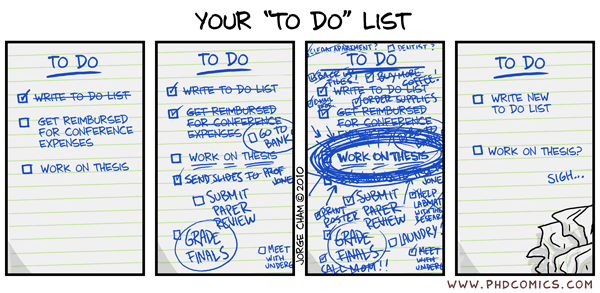When folk singer Peter Seeger died in late January of this year,
people were quick to mourn the loss of an American folk legend and activist.
People now fondly remember and honor his legacy, but, in the 1950s, Seeger’s
reputation was far from respected. “Seeger’s institutional enshrinement is
striking when contrasted with his vilification as a political subversive during
the McCarthy era” (p. 92). Though Seeger’s historical associations with the
party and his testimony at the House Un-American Activities Committee had not
changed, public memory of them has. What accounts for these drastic changes in
how society remembers individuals? What do consistency and change in
reputations tells us about collective memories and societal values?
| Retrieved from ABC News |
In Sticky Reputations: The Politics of Collective Memory in Midcentury
America, Gary Alan Fine explores these issues of individual
reputations, group dynamics, collective memory, and political commemoration. Fine
approaches issues of memory from a sociological and historical approach, focusing
on descriptions of events and the social and dynamic responses to them.
Midcentury America encompasses the years between 1935 and 1955, a time of
unease and fears about home-grown terrorism. Often referred to as the “McCarthy
era”, this narrow time frame still allows for detailed insight into how memory
functions politically. Fine’s main contribution to the study of memory is the
reliance on and explicating of reputations as imperative to understanding groups,
political maneuverings, and a time period. Representatives of and experts in
these categories shape collective memories of history. In some cases, memories
live on and affect current policy, such as the pervasive metaphor of the Red
Scare. Other memories may be forgotten, such as Seeger’s past or the Brown
Scare. How society remembers individuals is a
collective process that reflects the memories of groups, institutions, history,
and our roles within society. These reputations outlive the individual attached
to them, creating varying levels of “stickiness” that continue to resonate and
have influence over time.
Sticky Reputations begins by
outlining the major themes of reputation, collective memory, and American
politics. Fine argues for the lasting importance of individuals and, more
importantly, the memory of them that transcends their material being. He begins
by describing the quality of memories as interconnected through time. Memories
are chained together and influence one another with varying consequences. How
society chooses to remember, or is influenced into remembering by institutions,
is often due to previous memory “work” that guides how society can and should
remember the past.
The book could roughly be divided by its treatment of shifting and
sticky reputations. Shifting reputations are ones that change or are modified
over time, while sticky ones are immutable and immune to modification. To represent
shifting reputations, Fine explores how the Jewish community was once
stereotyped as members of the Communist Party. Despite their original
association with communism in the 1930s, by the 1950s, “the perceptual linkage
. . . had largely vanished” (p. 23). The Jewish community’s reputation also changed
as individuals broke patterns of association and revealed discrepancies in
perceptions of the group. Although the reputations of individuals shifted Jews
away from a negative association, some reputations shift group identifications
towards one. Fine explores how the demonization of a prominent American First
Committee member, Charles Lindberg, and his actions tainted the entire
organization. The explanation for Seeger’s memory transformation did not go
from individual to group, but instead was a transformation of the same memory
over time. In Seeger’s case, “memory agents” actively worked to adjust his
reputation and “purified” his reputation (p. 92). Others, such as Elia Kazan,
reveal that reputations are “historically unpredictable” (p. 108).
Fine also notes the dichotomy between presence and absence of
memory as oversimplified. Using the Brown Scare and Red Scare, Fine explores
how these events are equated through metaphor, but the Brown Scare is often
lost in history. Oftentimes, the “presence of absence” still carries meaning in
politics and, in this case, perceptions of home-grown terrorism. The borrowing
of the term “scare” is meant to draw parallels, in part to equate the
situation, severity, and needed reaction to extreme right affiliations as with
extreme left ones. The fact that the Brown Scare has been lost in public memory
indicates a potential misalignment in naming, or perhaps mirrors the more
salient threat that people felt from communism than fascism. Though the Brown
Scare was important and legitimate at the time, collective memory has forgotten
it and only the Red Scare “has entered into American historical consciousness”
(p. 80).
 |
| Retrieved from this blog |
The final chapter returns to the book’s title and discusses Adolf
Hitler as the quintessential sticky reputation. Sticky reputations resist
change, argument, and transcend individual actions to encompass entire value
systems. These types of reputations can be positive or negative. Fine argues
that Dr. Martin Luther King, Jr. represents a positive sticky reputation, where
criticisms of him are seen as attacks on his work and civil rights, in general.
King is now a stand-in for the larger movement, so one is unable to criticize
him without criticizing the legacy of civil rights in America. Similarly, negative
reputations mean that one cannot reclaim anything positive from Hitler (such as
the Nazi health care system) without risking the glorification of the
Holocaust. Sticky reputations mean that the individual cannot be separated from
values, groups, and the unfolding of history.
Outside of the shifting and sticky aspects of reputation, Fine
also explores the nature of expertise and the role of celebrity in political
activism. In analyzing the “Who Lost China?” debate, Fine provides a useful
framework for qualifying reputation as a combination of qualifications,
influence, and innocence. Innocence is perhaps the most complicated term, as it
implies that in order for reputations to be considered “experts,” they must be
free of any guilty associations with the parties involved. Instead of using the
term “unbiased,” Fine connects the potential influence of institutions and
politics on experts as guilty, unclean, and impure practices. Only individuals
that can maintain a pure, professional relationship with mitigating factors are
experts capable of testifying, such as on the economic and political factors in
China. Fine also address the politicization of celebrity through a discussion
of Hollywood blacklisting. He questions the validity of considering celebrities
as political agents who should be held accountable for opinions to the
government, the public, and their industry. Using Lilian Gish as an example,
Fine traces her film career with her political activism, noting her shifts in
political affiliation as leading to her being blacklisted.
Overall, the thread of reputations could be more strongly
connected throughout the chapters. All of the chapters touch upon these themes,
but they can be disjointed in their continuation of previous chapters and
transition to subsequent ones. The common theme of a time period does not entirely succeed
in linking these separate, discrete investigations of collective memory and
reputations. The book might better be called Reputations without a qualifier, for the lack of a consistent theme
of stickiness. The common themes more closely run between memory, how it is
socialized, and how people and groups are remembered. The brevity of chapters
also leave less than adequate room for the full discussion of these historical
events, which is exacerbated by the occasional enumeration of potential standards and norms for evaluating
collective memories. The scholar interested in collective memory and how
exemplars can change the course of history will be quite pleased with Sticky Reputations. This book will also
appeal to scholars interested in the political aspects of this era of American
history. Though unified by common themes of memory and reputation, this book
would also serve well as chapter case studies of how memory, and particular
characteristics of it, functioned politically in American history. Fine puts
forth many illuminating points about the role of the individual and how their
reputation has unforeseen influences on their group memberships, political
affiliations, American policy, social movements, and modern memory of history.
The narrow time frame does not restrict as much as allows Fine to contextualize
an important part of American history and allow the audience to find similarities
in today’s heightened terror levels and the unease of political threats.
 |
| Retrieved from Photoreading |
Although the flowers, young girls, and young men may be gone,
their reputations will live on, sticking in varying degrees to public memory of
history and American identity. Seeger’s reputation changed, allowing for his
songs and activism to become synonymous with American values of protest and
freedom. Others cannot be appropriated no matter the amount of memory work
performed. These sticky reputations reverberate through time and affect group
identification, advocacy of certain policies, and collective memory of American
history. America remembers itself and finds a place in society by commemorating
its exemplary individuals, their actions, and how they transcended history. Fine
argues that these aspects of memory combine and chain together to do more than
just influence memory; they affect how society remakes itself in the present
through comparison with history. How America remembers itself and how
contemporary society functions are directly and irrevocably linked to identity
formation in the present. Which reputations stick and which are subject to
change is an opportunity for inquiry that Fine prompts all scholars of memory
and history to consider. For now, only time will tell what reputations stick in
the minds of the American public and which are absent from collective memory,
with yet unforeseen consequences.






